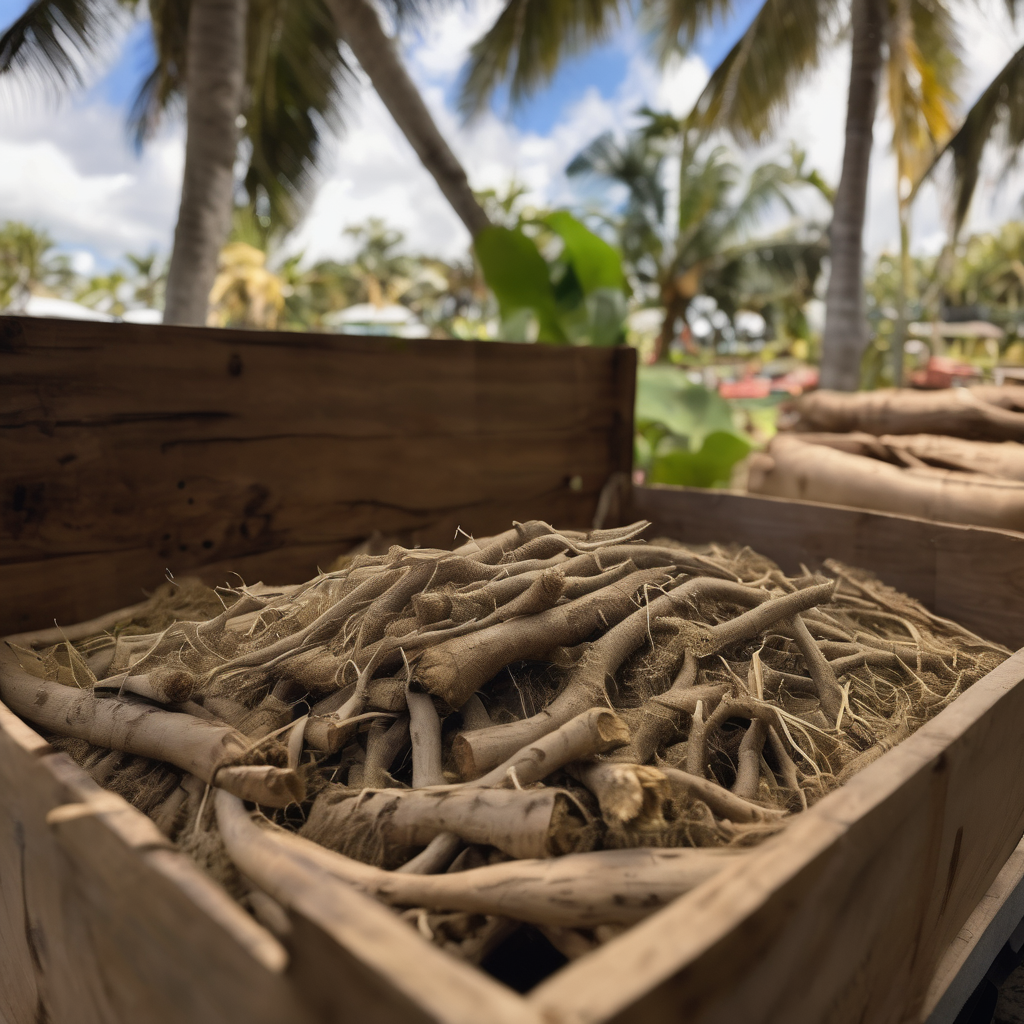ICSI Logistics Company Limited has achieved a remarkable milestone by successfully preparing and exporting the first commercial airfreight shipment of dried kava roots and chips from the Solomon Islands to Fiji. Scheduled for departure on November 8, 2025, this export follows Fiji’s recent decision to grant market access for Solomon Islands kava, a development that has been met with enthusiasm by local producers and exporters.
In response to this opportunity, ICSI Logistics collaborated with farmers and intermediaries from Temotu and Malaita provinces to take swift action. The company previously made headlines by exporting the first commercial consignment of dried kava to Australia, and this new shipment to Fiji further solidifies the Solomon Islands’ emerging position in the kava market.
Laboratory tests have shown that the kava from the Solomon Islands boasts a high total kavalactone content of 11.8 percent, surpassing many other Pacific varieties. This quality places the Solomon Islands in a favorable position both regionally and internationally, potentially increasing income for rural farmers and enhancing foreign exchange earnings for the national economy.
Gerry Elbourne, a spokesperson for ICSI Logistics, expressed pride in the company’s role in promoting Solomon Islands kava on a regional level. “This export marks a new chapter for our local farmers and for the Solomon Islands as a whole,” he stated. “We’ve proven that our kava is among the best in the Pacific, and we’re committed to building a transparent and sustainable industry that benefits everyone involved.”
Despite these positive developments, Elbourne pointed out several challenges that need to be addressed, highlighting the impact of high domestic and international freight costs on competitiveness. He called upon Solomon Airlines and local shipping firms to reassess their rates to support the growing export sector. Additionally, the high costs associated with transporting goods from provinces to Honiara have limited supply capabilities.
Another challenge lies in Fiji’s requirement that all kava exports undergo fumigation before shipment, a process that is not mandated by Australia and adds to the shipping costs. Elbourne urged the Solomon Islands government to engage with Fijian authorities to revisit these regulations.
In a concerning development, ICSI Logistics is currently filing a formal complaint against an intermediary who allegedly failed to deliver kava after receiving payment over 100 days ago, an issue that has also been reported by other buyers, including members of the Solomon Islands Kava Association. Elbourne emphasized that such dishonest practices can undermine international confidence and damage the reputation of the Solomon Islands as a reliable supplier.
Looking ahead, Elbourne encouraged farmers to reinvest in their plantations and replant kava, emphasizing the potential for kava to become one of the Solomon Islands’ most profitable cash crops. The combined efforts of local farmers and exporters signal a hopeful outlook for the country’s kava industry, where continuous collaboration could lead to significant economic benefits and the establishment of a thriving export market.
